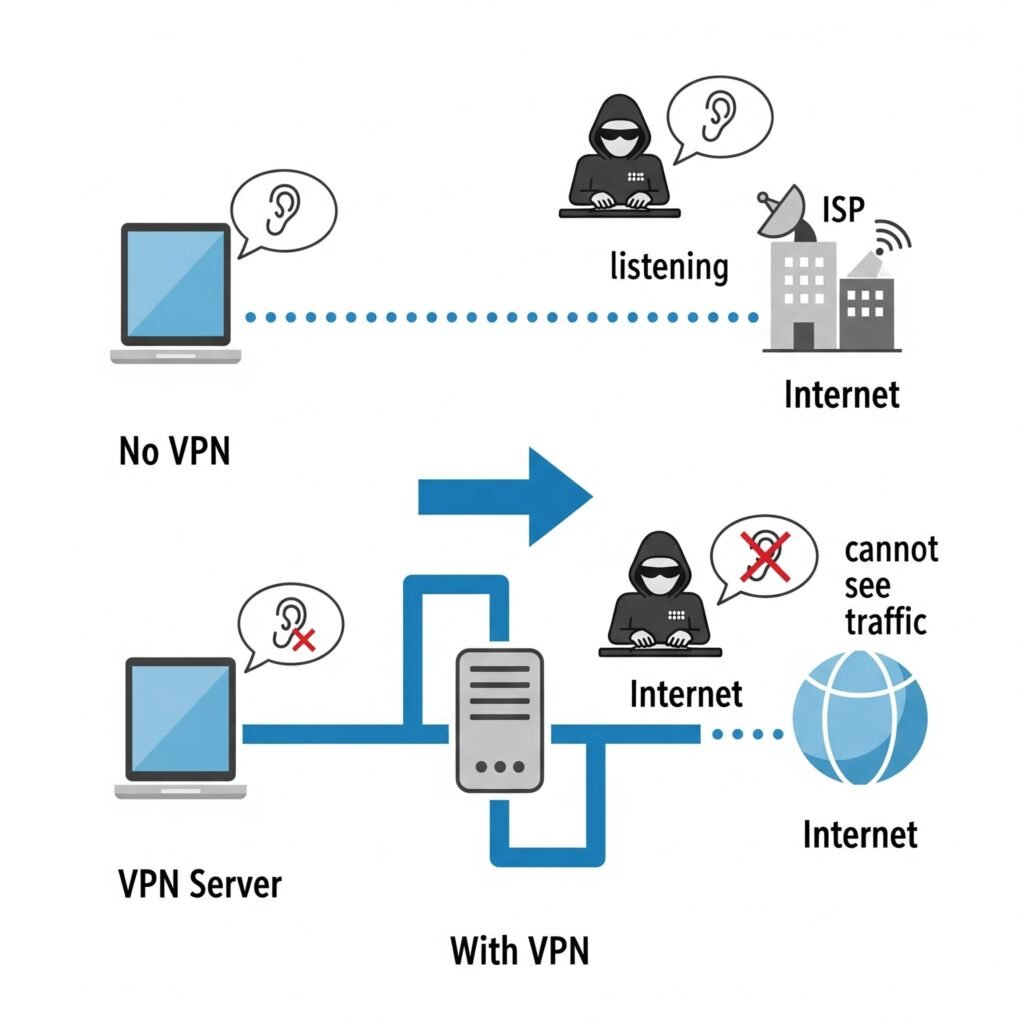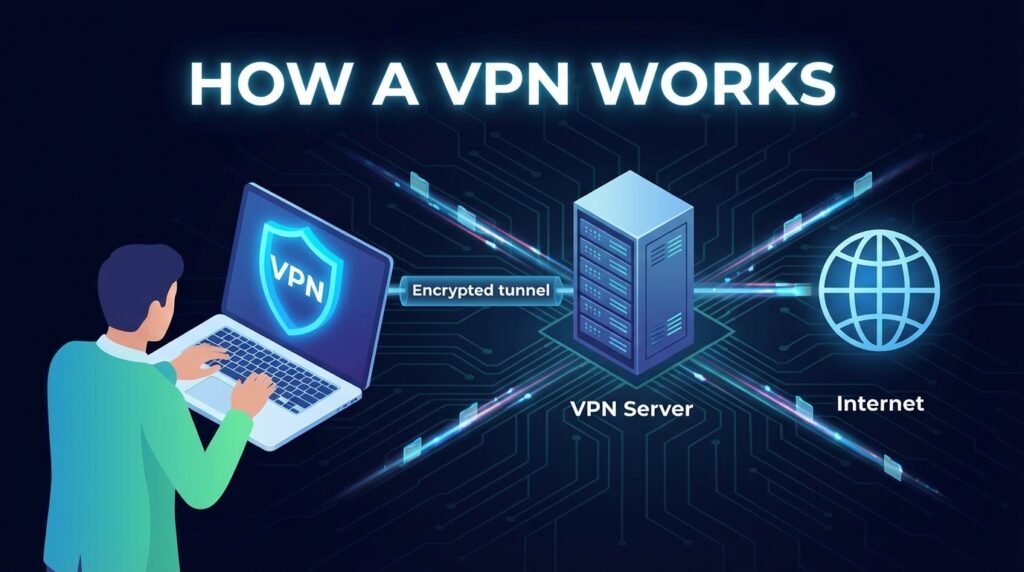Introduction
In a world where our lives are increasingly lived online, our digital footprints are constantly being tracked, from our Browse history to our personal data. If you’ve ever used public Wi-Fi, shopped online, or simply browsed the internet, your information is more exposed than you might think. This is where a Virtual Private Network, or VPN, comes in. Often seen as a tool for the tech-savvy, a VPN is actually a simple yet powerful technology designed to protect your privacy and security. Let’s break down exactly what a VPN is, how it works, and why it’s become an essential part of a secure digital life.
What Is a VPN in Simple Terms?
A VPN is a service that creates a secure, encrypted connection, often called a “tunnel” between your device and the internet. Think of it as a protective shield for all your online activity. Instead of your internet service provider (ISP) or public Wi-Fi network seeing what you’re doing, all they see is a connection to a VPN server. To the rest of the internet, it looks as if your traffic is coming from the VPN server, not from your actual location.
How a VPN Works: The Secure “Tunnel”
Here is the step-by-step process of how a VPN creates its secure tunnel:
- The Request: You open your browser and click on a link.
- Encryption: Your VPN software takes that request and immediately encrypts it, scrambling the data so it’s unreadable to anyone else.
- The Secure Tunnel: This encrypted request is sent through your internet connection to a VPN server you’ve chosen.
- Decryption & Forwarding: The VPN server receives the encrypted data, decrypts it, and then sends it to the internet destination (e.g., Google’s servers).
- The Return Trip: The response from the website travels back to the VPN server, is encrypted again, and is sent back to your device where your VPN software decrypts it.
This entire process happens in a fraction of a second, but it ensures that your data is protected and your digital identity is masked.

Key Benefits of Using a VPN
- Protects Your Privacy: A VPN hides your real IP address and location, preventing websites and advertisers from tracking your online activity. Your Browse history is visible only to you and your VPN provider, not your ISP.
- Secures Your Data on Public Wi-Fi: When you use free Wi-Fi at a cafe or airport, your data is vulnerable to hackers. A VPN’s encryption makes your data unreadable to anyone trying to snoop on the network.
- Bypasses Censorship and Geo-restrictions: Some countries or workplaces block access to certain websites. A VPN can bypass these restrictions by making it appear as though your connection is coming from a location where those sites are not blocked. This also allows you to access content (like streaming services) that is only available in specific regions.
Dispelling Common VPN Myths
- Myth: A VPN makes me completely anonymous.
Fact: While a VPN significantly increases your privacy, it doesn’t make you 100% anonymous. Websites can still track you with cookies or browser fingerprinting. It’s best to combine a VPN with other security practices. - Myth: A VPN will slow down my internet connection.
Fact: Some speed loss is common due to the encryption process and the longer route your data takes. However, high-quality, modern VPNs are designed to be fast, and for most activities like Browse or streaming, the speed difference is negligible.
Are All VPNs the Same?
No. There are free and paid VPN services, and their quality and security vary greatly. While free VPNs can be tempting, they often have data limits, slower speeds, and may even sell your data to make money, defeating the purpose of using a VPN in the first place. Paid, reputable VPNs offer strong encryption, fast speeds, and a strict no-logs policy, meaning they don’t record your activity.
Conclusion
A VPN is more than just a tech gadget; it’s a fundamental tool for anyone who values their online privacy and security. By creating a secure, encrypted tunnel for your data, it acts as a powerful shield against hackers, ISPs, and prying eyes. In a digital world where our data is a valuable commodity, understanding and using a VPN is no longer a luxury—it’s a necessity.



